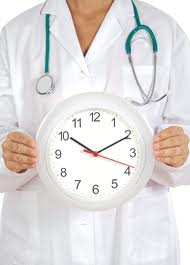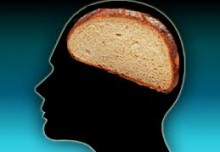 I have again asked our vice president for senior services, Steve Steiber, Ph.D. to share a guest posting about a concept that is gaining more attention these days, especially among health care providers caring for older adults. It is all about what time of day is best for your care receiver’s medicines. Steve has more than two decades experience in pharmaceutical and medical device consulting prior to joining CCM about 8 years ago. He reports:
I have again asked our vice president for senior services, Steve Steiber, Ph.D. to share a guest posting about a concept that is gaining more attention these days, especially among health care providers caring for older adults. It is all about what time of day is best for your care receiver’s medicines. Steve has more than two decades experience in pharmaceutical and medical device consulting prior to joining CCM about 8 years ago. He reports:
If you are a caregiver to an older loved one, you probably have seen all the medications in their cabinets, and part of the label of each of those is a clear statement of how often to take them. Prescription medicines used to have abbreviations like B.I.D., T.I.D., Q.I.D., Q.D. of less commonly Q.O.D. which translate into twice a day, three times a day, four times a day, once a day or once every other day, respectively. Thankfully, prescriptions now say things in plain English so caregivers or the care receivers do not need to know medical shorthand to understand when to take their medications. One element that has been conspicuously absent from the labels, however, has been any mention of when to take the medications, and that is getting a lot of attention in some circles.
Very simply put, your body does have a clock that works pretty much on a 24 hour cycle which is why most people have a typical time to go to bed, a time to rise and fairly regular times for their meals throughout their daily cycle. The new focus, of course, has a name, and this research into when is the best time to take a given medication is called “chronotherapy.” The focus of chronotherapy is on optimizing the timing of medications to give the best clinical effect with the fewest side effects.
In very general terms, the best time of day to take a once a day medication most often is at night time. Treatment for certain types of colon cancer, for instance, work better at night because the body’s normal cells are resting and less sensitive to the agents while the cancer cells are more vulnerable. And for medications with a drowsiness side effect, why not take them at night to actually benefit from the side effect instead of fighting it. For certain blood pressure medications, it is important to take them at night time so that they are at their best in the morning. That is because when the heart is just starting to “wake-up,” there is a spike in body hormones that can stress an unhealthy heart. Cardiac events are much more common early in the day versus any other time of day.
Drugs that are part of a category called “narrow therapeutic index” (NTI) drugs are most effective when taken at the same time every day because their doses typically are measured in micrograms instead of milligrams. Small changes in dosing can make a big difference in effectiveness. For any medications, make sure you also are paying attention to whether it should be taken with or without food. And, of course talk with your physician before you may any changes in your medication schedule.
In the second part of this two-part series, I am going to get into some specifics of certain classes of medications and how to use your clock to maximize their benefits. And just so I say it again, please do not make any changes in your care receiver’s medication regimen without first talking to their physicians.
Please let Steve know if you have any questions about drugs, their side effects or the unique medical challenges faced by older adults or others with special needs. Please email to: Steve Steiber. And check next Tuesday for part 2.







